#christian cults
Text
Why are all ex-cult conversations dominated by either "I joined a cult as an adult and escaped" or "I grew up Catholic/Mormon and have guilt"?
Obviously those conversations are important. But what about those of us who were born into actual Christian and Pagan cults, not huge mainstream Christian and Christian-adjacent groups?
I grew up in the fucking woods. I wasn't allowed off our property without supervision 95% of the time. My mother trained me in literal spiritual warfare. I was exorcized repeatedly as a teenager. All my health problems were blamed on sin. That isn't normal Christianity. Not at all.
It's not equivalent of "Uh my parents were Catholics such a cult lol". Catholic guilt is its own conversation, that has very little to do with actual cults. No, all religions aren't cults.
It's also not equivalent to people who joined cults as adults. They had their choice and they made it. I was fucking born into this and never had a fucking chance. Totally different.
And maybe I'm just an outlier. Maybe my experiences are just painfully unique. Maybe it was just my luck to be born to the leader of a cult that focused on breeding like rabbits instead of indoctrinating large numbers of outsiders.
But isolation and not being listened to hurts. Religion can be traumatic for anyone, but ex-cult conversations shouldn't be handled by people who weren't in actual cults to begin with.
You can ignore this. I'm just in a bitter mood because it's Christmas.
#Abraham original: Hot off the press#Ex-cult#Cults#Cults tw#Christian cults#Vent tw#Religious trauma#Vent
27 notes
·
View notes
Text
Barefoot girls hold a ribbon and loop around a maypole. Some, styled as the “Little Lambs,” dance for the hundreds gathered at the 15-acre Timonium estate known as The Farm. There are pony rides, potato-sack races, even a live band as people celebrate the end of history.
In faded photographs of the community, I see people who are trying to live their lives halfway to heaven. But that isn’t quite right. We were actually trying to bring heaven into this world. Along with others in the broader Catholic charismatic renewal, we believed that the Holy Spirit was pouring out right before our eyes. Because of our faithfulness, we were witnessing the breakthrough of the kingdom.
I was born into the Lamb of God, one of the dozens of covenant communities to take root in the 1970s when the charismatic renewal first swept the nation. Perceiving the American Catholic Church to be in a state of spiritual decline, Marylander Dave Nodar, his wife, Cheryl, Father Joe O’Meara, and a few others envisioned a kind of New Jerusalem in Charm City. They settled on the Westgate and Rock Glen neighborhoods off Edmondson Avenue on the City/Catonsville line. By the late 1980s, approximately 250 families occupied the two-story homes in those neighborhoods or on their periphery.
From the start, leaders encouraged Lamb of God’s members to eschew the modern world. Families were to limit television, secular news reading, even charity work. In Nodar’s view, offered to The Baltimore Sun in 1984, do-gooders meant well, but they “tended to fall into Marxism.” It was better to focus on one’s soul and the group than to become involved in “humanist” causes.
A policy notebook adopted from a parent community in Michigan stipulated that women (even higher-ranking “handmaids”) were to submit to their husbands, bear as many children as God willed, and refrain from masculine duties, such as spiritually directing children beyond the age of six. Men, in turn, were not to become too involved in domestic work or the more mundane routines of child-rearing. I don’t remember these specific rules, only knowing that feminists were miserable and that my mother loved me more than working moms loved their children.
On Sunday evenings, we convened at Woodlawn High School, UMBC’s event center, or some other place for prayer meetings. A music team worked the crowd into a zeal, then slowed the beat for adults to speak in tongues—ancient Hebrew, I was once told. “Slain in the spirit,” some fell to the ground and convulsed. Some went forward to deliver prophecies. There really was a sense of spontaneity, though it seems many of the divinations had been pre-screened by Nodar. An unidentified community member later told Baltimore magazine in 1994, “He’d decide if it was from God.”
Not long after the story ran, the community dissolved amid an archdiocese investigation around their finances (no legal charges were ever filed) and cult-like tendencies, then faded from public memory.
When I close my eyes, I can see and hear those prayer meetings. If I close them really tight, I can even slip back into their imaginal realm, outside of ordinary time and into a kind of deep time. Charismania is wonderful before it is terrible—a swooning into the sacred.
As children at the community-run school in Halethorpe, we celebrated our religion’s Jewish roots. On Christian Heroes Day, we dressed as Mary and the apostles. Some of us, wanting to show off, called Jesus “Yeshua.”
We heard relentless stories about Christians’ persecution. A Holocaust lesson centered on Corrie ten Boom, the Dutch woman imprisoned for hiding Jews. It will be years before I understand exponentially more Christians were part of the Third Reich than victims of it.
My mother helped to vet the books in the school’s library, which included books like Little House on the Prairie and The Courage of Sarah Noble. These stories of early settlers made me feel even more chosen—a super-Christian. But I swiftly moved on to approved adult titles at home.
One day, I was absorbed in a volume of Chicken Soup for the Soul when I came across my mother’s marginalia. “NO,” she had written for my benefit in the white space, along with a note explaining why the author’s conclusion was all wrong. Part of me will always be nine years old, reeling from this blow. Her later perusing of my diary and listening to my teenage phone calls—these did not sting as much as this first, thunderous notice that even while reading alone I was under surveillance.
My best friend, “Lydia,” whispered with me about which of our peers’ parents left marks when they spanked them. The threat of violence pervaded the children’s sphere. A wooden paddle hung in the school headmaster’s office and in many of the homes in “the cluster.” Mostly, kids’ own dads did the job. They could deliver more force than our mothers, while serving as stand-ins for our heavenly father. When they explained that they only hurt us out of love, any confusion was subsumed by allegory.
I didn’t know it, but a Catholic woman in the Westgate neighborhood had been complaining about us to the archdiocese. Almost from the moment it took over her block, the Lamb of God seemed to Patricia Whitman like the proverbial whitewashed tomb: beautiful on the outside, but inside, full of dead men’s bones and every kind of filth.
“It wasn’t Jim Jones, it was one step below,” she’ll tell me three decades later, going on to explain how leaders manipulated some members to remain committed while “pruning the vine” of others. “They’d threaten that if people left, they wouldn’t have spiritual covering, meaning the devil might pop out and get them at the grocery store. They were in danger of losing God’s grace.”
As little girl, I was fond of Fr. Joe, who came over for dinner and squeezed my hand under the table, but Whitman distrusted the man whose collar gave the community a veil of legitimacy. She’d heard he made girls and women uncomfortable. On a beach trip, she was told, he’d walked in as some girls were undressing. She was privy to things because she was a confidante for those who’d been shunned by Nodar and his associates, or who were contemplating leaving. Her front porch was many neighbors’ only safe place to be.
Between 1983 and 1987, Whitman wrote a series of letters to Archbishop William Borders conveying her concerns about the Lamb of God’s cult-like tendencies, including its “view of women as submissive and subordinate creatures,” and citing scandals in covenant communities in other states. He urged charity toward her fellow Catholics and claimed to have no authority over the group.
Then, in the early ’90s, rumors began to spread that some community money was missing, and Borders’ successor, Archbishop William Keeler, summoned Whitman downtown to talk. Only after their meeting did she realize he had picked her brain to see how much she knew, not because he wanted to help the people in the community. He seemed worried she would go to the media.
Neither Borders nor Keeler honored her requests for confidentiality. It was never long after mailing her concerned letters about the Lamb of God community that members would linger outside her gate to pray, one even sprinkling holy water in her yard. One local priest threatened to have her excommunicated if she didn’t quit her crusade.
The financial controversy pertained to the $1.9-million sale of The Farm to developers. Some members, who tithed up to 10 percent of their income to the community, wanted to know: Where did all the money go? In 1992, former members John and Marie Cignatta were so perturbed by this question and other matters that they penned their own letters to Keeler, pleading with him to intervene. He agreed to formally investigate the community, then invited Nodar to apply for official status as an archdiocesan organization, subordinating the group to church authorities.
If Keeler hoped to avoid negative press, he was surely disappointed to see the exposé this magazine published in February 1994. In “The Cult Next Door,” Patrick J. Kiger luridly details how community tensions exploded into a “suburban holy war.” He quotes an ex-member on the “Stalinist” system of surveillance that had people reporting heterodoxy up the chain, also spilling ink over Nodar’s reputed perks, which, even before The Farm’s sale, included a free home and community-paid services ranging from plumbing to the babysitting of his children.
That was the year my family left Baltimore for the hour-north town of Hanover, Pennsylvania. If my parents were relieved to leave the community behind, they didn’t let on. When they claimed to be “getting away from crime,” they didn’t seem to mean their co-religionists’ crimes. My brother and sister were unfazed, but I cried, as I didn’t want to leave Lydia.
In those days before social media, it may have been inevitable that our childhood friendship wouldn’t survive the distance. As the years passed, I thought less and less about Lamb of God. I had no idea that, while the school remained, the community had largely dissolved, nor that Nodar had formed a new evangelization ministry. Even though I struggled for words to describe Lamb of God to my new school peers, I didn’t think of it as anything more than a group of like-minded families that my parents found. There was too much continuity before and after the community for me to view it with suspicion.
The parish we attended in Hanover was animated by the very same fantasies, especially pertaining to women. In fact, it was in a religious education class there that I learned that feminists were not only miserable, they were eminently rape-able. Unmarried women had no virtuous men to protect them, and contracepting women—well, they “asked for it” by disavowing their fertility and thereby objectifying themselves. Anyone who doubted this could read Pope Paul VI’s 1968 encyclical Humanae Vitae, which foretold of a hellish world for women following the advent of the pill.
It got to me, this exhortation to marry and have a house full of babies “or else.” This was so, even though, by the early 2000s, the newspapers were reporting on rampant clerical sex abuse, and the tone of some laymen’s voices when they spoke to their wives was enough to raise the hair on my arms. There was also unremitting talk about sex: who was having it, who wanted to have it, who dressed like they wanted to have it. I was then a virgin, but I felt so ashamed. I needed Lydia more than ever, but I settled for eating as little as possible. I couldn’t be a Delilah if I disappeared.
Reflecting on the interregnum between the established order and revolution, the Italian political philosopher Antonio Gramsci wrote in 1939, “The old world is dying and the new world struggles to be born. Now is the time of monsters.” My dad drew upon a similar idiom to account for the way I was becoming more sullen and defiant. He took to remarking he once had a happy little girl, but aliens came and abducted her.
Spiritual abuse is such a quiet violence—a violence of the shadows—it was decades before I found the words to contradict him. By then, I’d left the Church, married one of the heathens, and born two children. Still, my father listened. He said he was sorry for not protecting me from the toxic elements of Catholic culture.
For all our conflicts, my father and I have never been estranged, and so I’m at ease telephoning him in 2020, after I’ve read about Supreme Court nominee Amy Coney Barrett’s People of Praise, to insist, “We were in a fucking cult!” No, he says, it wasn’t that. I do more research and circle back: “Mom was a handmaid.” He replied that she wasn’t and anyway, Lamb of God didn’t really use labels.
Still wanting answers, I joined a Facebook group for current and former members of covenant communities. It’s here that I see that Fr. Joe has been removed from ministry after three women accused him of “inappropriate touching.” I dial Dad again. He’s heard about it, but the language is so vague—it could mean anything, he says. My mother chimes in that Fr. Joe was always affectionate. These days, that can be misconstrued.
The archdiocese won’t release to me records pertaining to Keeler’s investigation of the community, but I find a slew of digitized documents about Lamb of God, including Whitman’s outgoing and incoming letters, at the University of Michigan. I call this woman, now 79, and listen as she talks about the community and the authorities’ tacit endorsement of it.
“It really made me question my faith,” she says of the latter. “I had to remind myself that my strength in God is what counts.”
Not long after our conversation I read more explosive news in The Baltimore Banner: Fr. Joe has been identified as #155 in the state attorney general’s report on child sexual abuse in the Archdiocese of Baltimore. He reportedly kissed children on the mouth and would try to move his hands up girls’ legs toward their genitals when a dinner guest at their homes. A housekeeper told of him talking about the size of her breasts. One woman described him tracing the outline of her bra, and another reported “a fondling regimen, inappropriate touching, and digital penetration.”
I text the story to my parents, but they don’t reply. When I stop by their house later that day, I notice The Sun’s pages on the table. I ask my dad if he’s read the Banner piece, and he says yes. He’s disturbed, though he needs to investigate the publication’s credibility.
A few days later, he and my mother come over for dinner, and we talk about Fr. Joe. There’s no question on anyone’s mind that he’s done grave wrong. At one point, my dad goes outside to join his grandchildren at play, and my mom offers that she did not like the way Fr. Joe would kiss her head, though it never occurred to her to object.
I wonder if Lydia has seen the news and if so, what she thinks of it. After years of meaning to do so, I reach out and ask if she wants to have lunch. After I send the message, I wonder if she’ll find it strange. It’s been so long; at this point, we’re really just the kind of friends who like each others’ social media posts. She quickly replies, saying how often she thinks of me. She’d not heard about Fr. Joe, so I send her some articles.
When we meet, I am startled by her voice. It’s not as I remember it. I let the sting wear off before making the observation. “I was thinking the same thing,” she says. “We don’t have our little girl voices anymore.”
Having found this common ground, or perhaps having named what is gone, we quickly fold back into each other. We share our scars, our dangerous memories. We acknowledge how impossible it was to move on. I tell her I’m thinking of writing about the community. She takes a deep breath, and I can see how heavy it all is.
Driving home, I think of the Valentine’s Day card I recently found wedged in a stack of old photographs. “To Audrey: We thank God for you and the happy way we feel loving you. Dad.”
Then my mind drifts toward the women who came forward about Fr. Joe. I wonder exactly how many of them were in the Lamb of God and how close they remain to its people, images, rituals. Do their children attend the school that is still around? Or is the community more of a spectre, something that only finds them in the dark?
It occurs to me, at the very least, each one of these women must have retained hope, as I have, that a new world really is at hand. Justice, democracy, the Kingdom of God, whatever she calls it—it’s coming.
1 note
·
View note
Text
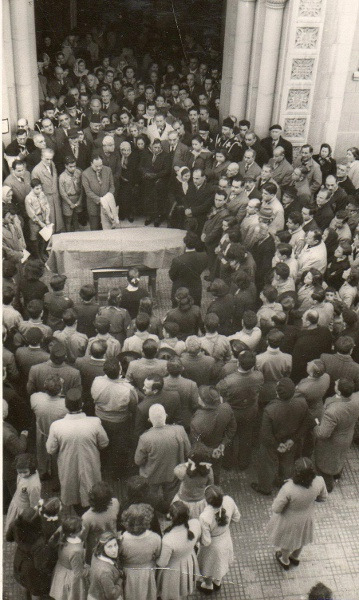
I think it needs to be more widely recognized that some Christian churches operate exactly like cults. I’m just coming to the realization that a church that I was a part of from maybe 6th to 12th grade was if not technically a cult, structured incredibly similar to one.
I’m beginning to realize that while a lot of my struggles with mental health (depression, OCD, self-esteem issues, etc.) would have been there regardless of whether I was involved in that church, most of the reason they are as bad as they are stems from things that church taught me.
Christian Churches definitely operate as cults
1 note
·
View note
Text
You know what? I want a whole post for this:
Sex Repulsion is not the same thing as, or an excuse for, Sex Negativity
non-negotiable!
I am a sex-repulsed asexual. This means that I am uncomfortable and repulsed by the idea of engaging in sexual acts. This does not mean that I have an excuse to be repulsed by other people's sexual attraction or the right to police how other people engage in or express sexual acts or attraction.
Young queer people need to learn the difference between sex repulsion and sex negativity, and actively work to unlearn sex-negative attitudes. Asexuality, even sex-repulsed asexuality, is and should be fully compatible with sex positivity.
If you are uncomfortable with the idea of other people feeling sexual attraction or engaging in sexual acts that do not involve you in any way, that is not sex repulsion it is the cultural Christianity and you need to seriously work on that.
#we as asexual people have got to have a talk about this because the shit i have been seeing is NOT okay#asexuality#sex positivity#this is largely intracommunity allo people can engage w/ it but don't be clowns#original post#500#1k#PLEASE STOP TAGGING THIS AS 'CULTS' YOU CAN CRITIQUE A RELIGION W/O CALLING IT A CULT I AM BITING YOU#this barely even mentions Christianity like someone does not need to be in a cult to be sex negative. and also not all religions are cults#please be normal#other than that y'all have actually been very normal abt this one so far thank you#2k#5k
8K notes
·
View notes
Text

[Image ID (sorta, basically just the text from it):
GET KOSA TRENDING.
STOP SCROLLING NOW!
AS OF FEBRUARY 21ST, 2024, WE GOT FIVE DAYS UNTIL THE DAY OF DECISION OF THE KOSA BILL, WHICH WILL CAUSE MASS CENSORSHIP ROUND THE INTERNET IF PASSED. OR DOOMSDAY. WE NEED EVERYONE TO KNOW ABOUT THIS AND CONTRIBUTE. I'M NOT GIVING UP ON YOU ALL.
WE'RE DOWN TO THE WIRE BUT WE CAN'T GIVE UP YET. IF WE GIVE UP, EVERYTHING IS OVER. IF WE DON'T, AT LEAST WE HAVE A CHANCE.
I'M THE ONE WHO SOUNDED THE ALARM, AND I'M NOT GOING TO CURL UP AND DIE YET.
Reblog this post in every LEGAL way you can under the Tumblr guidelines with the appropriate tags. TELL AND TAG EVERYONE YOU KNOW, then add the tags to see below... and more if you can think of any complying.
Visit badinternetbills.com if you want to find a way to defeat KOSA. It WILL NOT take much of your time. Reblog with any other information or sources, too-- but make sure to reblog if you can.
Reblog if you support lgbtq+ content.
Reblog if you support questioning queer youth and/or abused youth getting the information they need.
Reblog if you support Ao3 and/or other sites that wholeheartedly preserve talentedly made media.
Reblog if you're going to repost this on other sites than Tumblr and spread the word across Twitter, Tik Tok, Pinterest, or elsewhere, alongside the link to badinternetbills.com.
END image ID]
Hey, everyone. So yeah, this is happening. We're still fighting this battle. And we can't give up now. We can't. We can't stand idly by while one of the most important resources that helped us all wake up, or at least start to question things, is being threatened by the government.
We can't stand idly by when kids, teens, and adults just like us still trapped inside might lose access to the resource that could help them wake up. We can't stand idly by when they might lose access to their non JW friends and family. We CAN'T stand idly by when we can do something to stop this bill from passing.
I am sick and tired of this same old song, where conservative fuckers higher up think they can oppress everyone. I am FUCKING SICK of it.
Please, reblog both this post and the original post linked above what I've written, and do what you can to stop KOSA, please. We are running out of time.
I suggest that if it is within your power to do so, that you do more than simply reblog and assume someone else will do something. DON'T assume that. Please do more than just reblogging if you are able to, because that's not really enough at this point.
Call/email representatives in the House and tell them to oppose KOSA (you may want to list different reasons depending on who you're calling, some House representatives are anti-LGBTQ+, so it may be best to tell them to oppose because it violates people's privacy, safety, and anonymity online). Print posters and put them up where legal if you can.
Sharing all this information to other social media sites (Instagram, Reddit, TikTok, the bird app) to reach more people can really help too. The wider the reach, the better.
Thank you. Now let's fucking rip that bill apart like we rip apart Watchtower magazines and eat it for fucking breakfast.
(In a "we're eating it and the politicians who are sponsoring it are looking on in horror" kind of way)
#kids online safety act#internet censorship#stop kosa#exjw#ex jw#ex jehovah's witness#ex jehovah's witnesses#not necessarily ex jw related tags but still relevant bc this bill also affects these communities:#queer#lgbtqia#lgbt#lgbtqplus#lgbtq community#ex catholic#ex mormon#ex christian#ex evangelical#ex cult
2K notes
·
View notes
Text
i’ve read so much tradcath bullshit the last two years. i can confidently say tradcath men fit into one of two categories:
“protestant-raised and converted to catholicism because of his crippling porn addiction and racist tendencies. reposts crusader and conquistador memes. is hated in his local parish.” tradcath
“catholic-raised band kid who ate his lunches with the religion teacher. smells like mildew. cut off all his friends that came out as gay after high school. now larps as an aquinian scholar and cries after jerking off.” tradcath
#|| the disciple ||#ex catholic#ex christian#religious trauma#exvangelical#deconversion#apostate#apostasy#ex fundie#extian#deconstructing christianity#ex religious#ex cult#ex cath#religious deconstruction#deconstruction#catholic guilt#progressive politics#leaving the church#losing my religion
1K notes
·
View notes
Photo
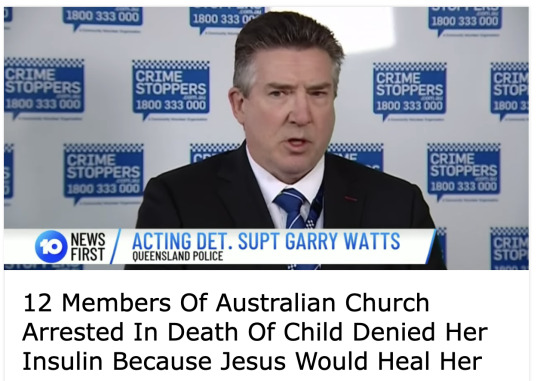
https://www.joemygod.com/2022/07/12-members-of-australian-church-arrested-in-death-of-child-denied-insulin-because-jesus-would-heal-her/

0 notes
Text
I was having the worst day and then this video appeared on the CR TikTok and honestly I feel so much better now.
Here are some screenshots highlights

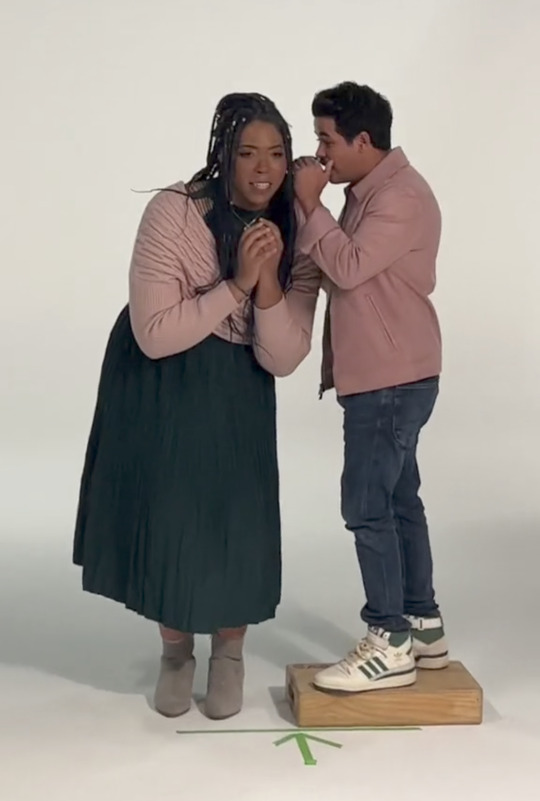

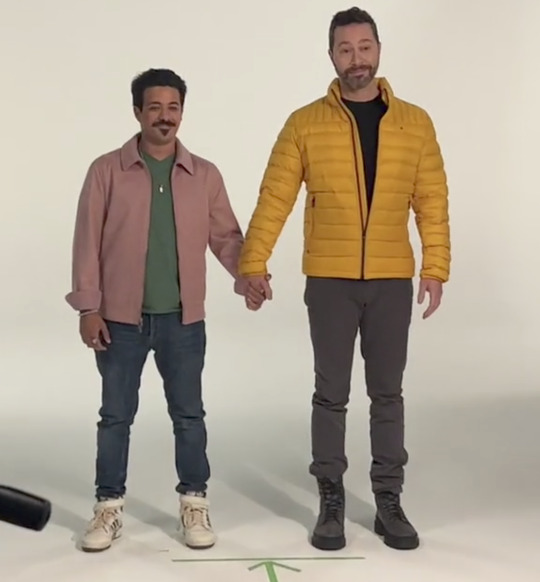


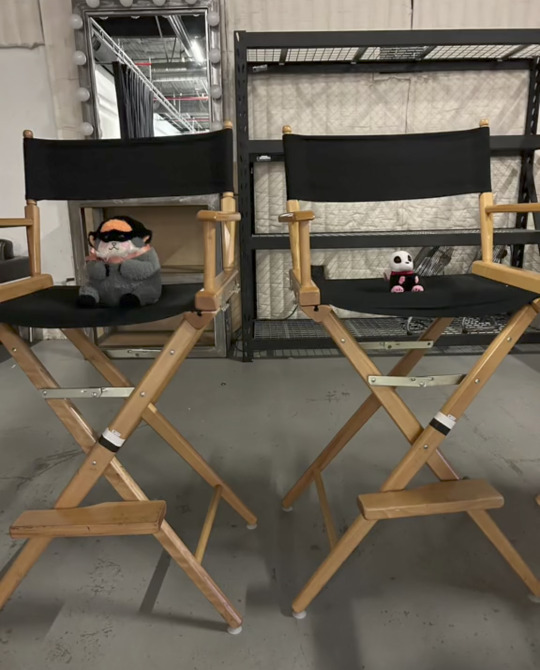

#critical role#liam o'brien#liam thirst cult#sam riegel#laura bailey#ashley johnson#aabria iyengar#christian navarro#taliesin jaffe#marisha ray#matthew mercer#mister#pate de rolo
2K notes
·
View notes
Text
I don't know what atheist needs to hear this but when someone tells you they're a cult survivor, telling them that all religions are cults is both untrue and unhelpful 😌💕
#cult survivor#honestly atheists are more exhausting to talk to than hardcore christians like 90% of the time#exmormon#exmo
1K notes
·
View notes
Text
I was raised in the People of Destiny cult (later renamed, and more well-known as, Sovereign Grace Ministries, now Sovereign Grace Churches).
The valorization of martyrdom and The End Times was so ubiquitous it was ambient noise. We stood in the church lobby theorizing about who the antichrist would be, we argued about whether Jesus would rapture us all before, after, or during the Tribulation Period where Satan would be given free reign over the earth. There was a strong Christian Zionist fixation on Israel as the final battleground and capital of the coming Messianic Age. But the one thing we were all certain of was is that we were in the End Times, that we were not of this world and couldn’t get too attached to our lives here.
We were raised to believe our sin nature made us undeserving of life, that we deserved death and eternal conscious torture.
My parents read us the Jesus Freaks books (a series by Christian Rap group DC Talk about martyrs). I spent “devotional time” reading Fox’s Book of Martyrs. We had guest speakers from Voice of the Martyrs, their pamphlets were often stocked in our church’s information center. We grew up with our dad listening to right wing talk radio and making us listen to songs about how the Godless atheists were outlawing Christianity in America, that we could all become martyrs soon.
The group’s theology was damaging & traumatic in a lot of other ways that contributed to the suicidality I have continued to struggle with for the rest of my life. For a long time I did not believe I would live past 20. There are times when the idea of giving my death meaning by using public suicide to make a political statement has appealed to me.
So now, seeing so many social media posts glorifying the suicide of a US Airman this week, I have been furious. Reading his social media posts, I recognize so much about the way I was raised in his all-or-nothing, black-or-white mindset, the valorization of death-seeking & martyrdom, and the apocalyptic fire-and-brimstone imagery of self-immolation. The moment I saw people I followed celebrating his self-immolation, I said to myself “this feels like a cult”
So when I learned he was raised in a cult too, nothing could have made more sense to me. His political orientation may have changed, but his mindset did not—it was no less extreme or cult-like.
I’ve talked about so many of the reasons this response from the broader left scares me, including how it’s laundering that airman’s antisemitic beliefs, but I cannot think of anything that would hit me in a more personal place than this specific response to this specific situation has.
When I see the images, I think: that could have been me. That scares me, and what scares me more is that so many prominent people are overwhelmingly sending the message to people like me that there is nothing else we can do that would have a more meaningful impact than killing ourselves for the cause.
I do not believe that. I will not even entertain it. And having to see his death over and over and over again, to argue against people who are treating this like an intellectual/moral exercise or a valid debate we all have to consider has been immensely triggering and fills me with a rage I rarely feel. It’s unconscionable that we are even putting self-harm on the table, and that pushing back against that is somehow controversial.
There is hope. Our lives do have meaning. There are far more effective means of fighting injustice. And the world is a better place for having you in it. Don’t fall into believing this is a way to give life purpose.
#he was raised in a different cult than me but there is significant overlap in the Community of Jesus & People of Destiny worldviews#EDIT: I originally said the Tribulations were ‘7 1/2’ years but this was me confusing the ‘a time times & half a time’ from Daniel#with the idea of a 7 year tribulation#it’s been forever and a lifetime since I lived in that world so the exact theological details can be hazy#death cult shit#extremely traumatic content#i/p#cw suicide#religious trauma#cw trauma#antisemitism#pdi international#people of destiny cult#sgm cult#sovereign grace cult#christian cult#cult survivor#death cult#evangelical apocalypticism#exvangelical
388 notes
·
View notes
Text
I wish I knew anyone else who was the kid of a cult leader. Anyone who understood it. The constant perfectionist standards, the kinds of abuse I was encouraged to inflict on my peers, the fucking righteous sadism, the self loathing, the everything. My mother's christian cult was the suburban variety, we were not the Manson family by any means, and most people viewed us as perfectly acceptable if a bit odd. I just wish anyone else understood how I developed half a dozen mental disorders from what looked like the perfect loving family.
#Abraham original: Hot off the press#Cults#Cult escapee#Cult survivor#ex christian#ex cult#religious trauma#exvangelical#Christian cults#Cult leader's children#Cult kids
28 notes
·
View notes
Text

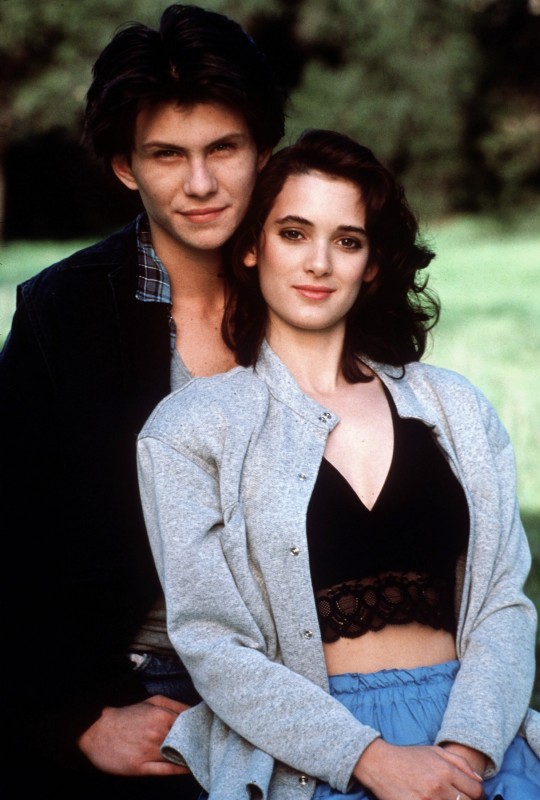
Christian Slater and Winona Ryder - Heathers (1989)
#christian slater#winona ryder#heathers#80s movies#cult movies#michael lehmann#black comedy#J.D. Dean#veronica sawyer#1980s#1989
1K notes
·
View notes
Text
#I couldn’t put gay cause that would hella skew the results#love the queer exmo presence on tumblr#exmo#exmormon#exlds#ex cult#apostake#apostate#ex christian#pimo#exmormon poll
1K notes
·
View notes
Text
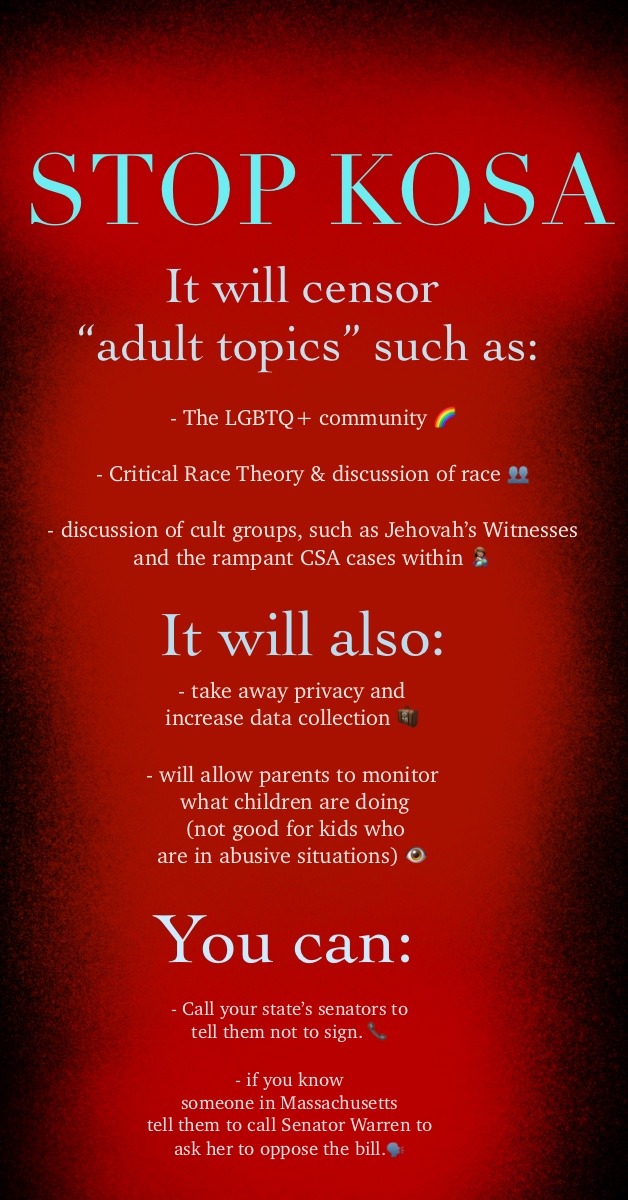
Please do what you can to stop this bill from being passed, and please share this message where you can. It's going to be very bad for pretty much everyone on the Internet if this bill is passed.
If you're skeptical:
There are resources online with more information about the KOSA bill, including articles written by lawmakers explaining why this bill is a terrible idea.
There is even a TechDirt article written by Mike Masnick titled "Marsha Blackburn Makes It Clear: KOSA Is Designed To Silence Trans People" where they write of and post a video in which Senator Marsha Blackburn (who co-wrote the bill) explicitly stated that this bill would be used to target the trans community.
So please share this in your stories, with your family and friends, and call your Senators to tell them not to sign this bill. And if you know anyone in Massachusetts, tell them to call Senator Warren to ask her to withdraw her support of the bill.
Thank you for your time and consideration.
EDIT - UPDATE:
Please read the post I linked below, it pertains to the status of the KOSA bill. Things are not looking good right now.
UPDATE #2:
Please look at this post!
#lgbtq#lgbtq+#lgbtqia#lgbtqplus#lgbtq community#lgbtqia2s+#lgbt#critical race theory#blacklivesmatter#black lives matter#race#exjw#ex jw#ex jehovah's witness#ex mormon#ex catholic#ex christian#ex cult#apostate#religious trauma#religion#stop kosa#kosa bill#kosa act#kosa#kids online safety act#internet censorship#censorship#us politics#politics
518 notes
·
View notes
Text
i’m sorry but even if your personal version of mormonism excludes all the “if you’re a good mormon your skin will turn white when you die, no matter your race” and “dark skin is a sign of the devil” bs, your religion is still racist.
the idea that israelites sailed across the atlantic ocean and formed a population in north america that could be attributed to native americans is racist.
the idea that jesus christ appeared to native americans and converted them to christianity pre-colonial times is racist.
the idea that the arrival of christianity to north america with european colonialism was a prophesied “reintroduction” of christianity is racist.
the foundations of your religion are racist.
the foundations of your religion are historical negationism.
the foundations of your religion justify american colonialism as the will of god.
try as hard as you want, it’s impossible to remove racism from mormonism. it’s racist by nature.
#|| the disciple ||#ex mormon#exmo#ex lds#exvangelical#ex christian#ex catholic#lamanites#nephites#ex cult#apostate#ex fundie#deconversion#atheist#religious trauma#ex religious#apostasy#deconvert#leaving the church#losing my religion#ex fundamentalist#deconstruction
5K notes
·
View notes
Text
i was thinking about the sleep deprivation thing that cults do and something i completely forgot about with regards to that conversation is that the sleep needs of children/teens are different to adults. it's a range as most things are, but when it comes to sleep you HAVE to go based off the biggest number to ensure everyone gets proper sleep because you cannot function properly without proper sleep
so, if you were a teenager who went to church camps and they allowed for less than 10 hours of sleep, or if you were a kid (6-12) and they allowed for less than 12 hours of sleep, you very well may have been sleep deprived, either intentionally or unintentionally
and as a little bonus: adults tend to respond to sleep deprivation with tiredness, but kids tend to respond with hyperactivity, and even one night of sleep deprivation can affect someone
#i don't think my places were intentional cuz most people don't know the amount of sleep kids/teens need#but i am so positive that we were not getting 12 hours to sleep when we did the middle school thing (11-14)#or the thing that had high school and middle school#i cannot remember the middle school thing but the high school ones were during summer#and i remember us always getting into bed when it was pitch black And that we had to wake up way earlier than anyone wanted to#yes it's possible we stayed up past curfew but i remember playing group games in the dark#insane that they did this to us#cult tactics#religious trauma#ex christian#personal
443 notes
·
View notes